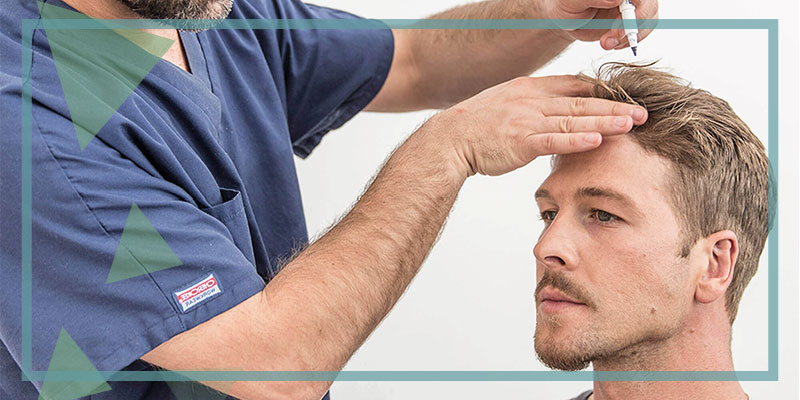What You Need To Consider After Hair Transplantation
Although there are various hair treatment methods for hair loss and baldness, most of them do not offer permanent solutions. Therefore, people suffering from hair loss prefer hair transplant operations, which are a reliable solution and give permanent results. Although hair transplant operations are a fast and easy process, the person may still be stretched or scared because they will undergo an operation, all these situations are quite normal.
People who will have hair transplantation first go to the doctor and wait for a correct diagnosis because hair loss can have many different environmental and genetic reasons. Then, it tries to choose the most suitable hair transplant technique and method for the scalp, hair follicles and itself.
At this point, experienced experts guide the person for the most appropriate hair transplant method and convey the entire operation process to the person. After the person has passed the first stage for hair transplantation, he begins to prepare himself physically and psychologically for the process. First of all, the whole process should be learned from the specialist before the hair transplantation, and if there are any questions and points about the process, the curiosity should be removed by asking the expert. Otherwise, these questions may cause problems by getting caught in the person's mind in the future.
Subsequently, it is necessary to learn the things to do and not to do before and after the hair transplant operation. At this point, what should be done after hair transplantation is as important as what should be done before hair transplantation.
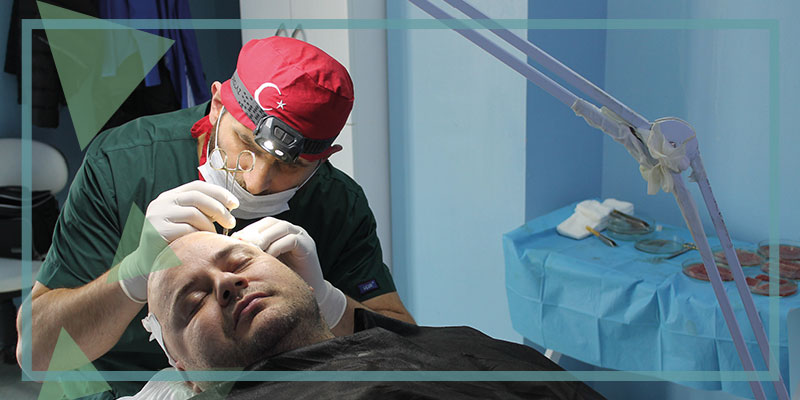
How Does Hair Transplant Process Work?
After you decide to have a hair transplant, there is a process that you need to pay attention to. This process does not only cover the post-hair transplant process, there are points to be considered before hair transplantation. In general, this process appears as: preliminary preparation, hair transplant operation and healing process.
All processes are equally important in hair transplantation treatment, so the person who wants to transplant should be careful in every process and pay attention to the process. In order for hair transplantation to give more effective results and to avoid a possible negative situation, extra attention should be paid to the post-hair transplantation process.
Before hair transplantation, the person should quit blood thinners such as aspirin, stop alcohol and cigarette consumption, and avoid strenuous activities. Since the things that the person needs to do before the operation have been previously conveyed to the person by the specialist, there is usually no need for extra research. Apart from this, it will be healthier to take a shower and come to the operation since hair washing is not allowed for the first 3 days after hair transplantation. In order for hair transplantation, which is a permanent solution, to give more effective results, extra attention should be paid to the things to be done after hair transplantation. In this process, the hair may not be fully settled on the scalp, as new hair follicles are transplanted to the problematic area. Anything wrong after hair transplantation can cause damage to the transplantation area and cause the process to be completely wasted.
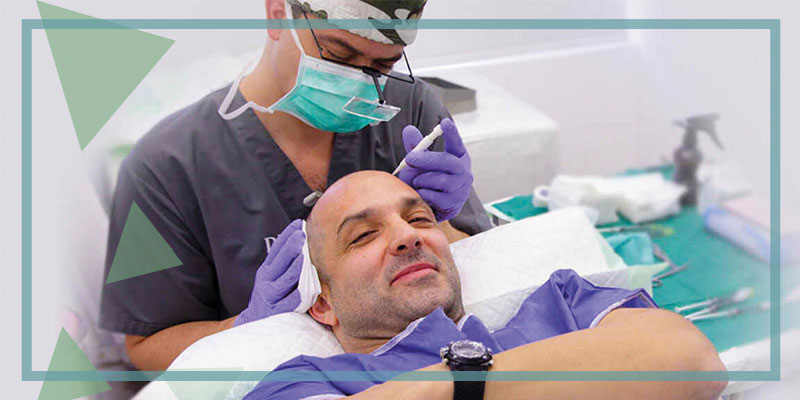
The First 3 Days After Hair Transplantation
The person should pay extra attention for the first 3 days after hair transplantation because the area where the hair transplantation is made becomes extra sensitive. After the operation, the person should pay attention to the eating habits and the care to be made in the area where the hair transplantation is performed. Extra care should be taken for the transplantation area and contact should be avoided.
The main points to be considered in the first 3 days after hair transplantation are:
Bandage is applied to the donor area after the operation, you should wear a forehead band to prevent swelling in the area. The first day should be rested. Driving for the first 6 hours is not recommended. Alcohol should never be consumed. The area where the hair transplantation is performed should not be exposed to sunlight, it is recommended to wear a soft hat. The area where the hair is transplanted should not be touched in any way. Anti-edema medications given by the doctor should be used. Smoking should not be consumed.
In order for the edema in the hair transplanted area to pass quickly, the person should keep his head upright as possible. Exercise-requiring activities such as sports, sexual intercourse and heavy work should be avoided. The transplanted area should not be hit in any way. Do not lie on your back as much as possible. It is very important to pay attention to the above points in the first 3 days after hair transplantation because the newly transplanted hair may not be fully settled on the scalp. The next day of the hair transplant, the bandage in the donor area should be removed and the dressing should be done, so you should go to the clinic or hospital where you have hair transplantation. After your dressing is renewed, edema in the sowing area is removed by using the medications given by the specialist.
During the first 3 days after the operation, there may be occasional bleeding in the transplantation area and in the donor area where the hair follicles are taken. These bleeding is quite normal after hair transplantation, but if the bleeding increases and gets severe, you should consult your specialist.
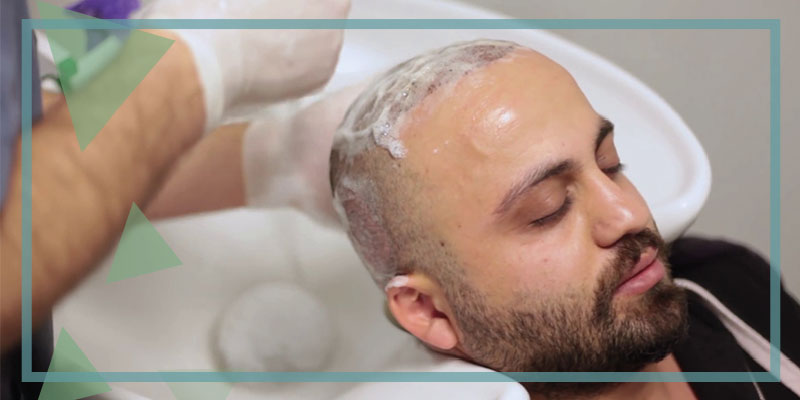
The First 15 Days After Hair Transplantation
The first 3 days after the operation are very important, but it is not enough to pay attention to these. In the first 15 days after hair transplantation, the person should dry the area where the hair transplantation is performed and protect it from a possible impact because these periods are the recovery process after hair transplantation.
Although the healing process after transplantation varies according to the person and the hair root, it takes an average of 6 months to 1 year. If you want to have more natural and healthy hair, you should pay attention to and protect the transplanted area between the first 3 to 30 days.
· Nutrition
After the hair transplant, you should pay attention to your eating habits, except for the doctor's instructions. Your body may weaken due to the surgical procedure you have undergone and it may take longer for your scalp to heal. Therefore, it will be much better for the health of both you and your hair to eat foods that may be beneficial for your hair during the healing process. You can add foods rich in B vitamins such as red and white meat, bananas, eggs and avocados to your diet after hair transplantation. In addition to these foods, you should add foods rich in vitamins E and C such as almond, spinach, olive oil, cabbage, kiwi and citrus fruits to your list. You can also use foods that contain vitamin A, such as carrots, sweet potatoes, and cabbage, to make your hair follicles stronger and grow quickly. In addition to vitamins A, B, C and E, you also need to meet the iron needs of your body because iron deficiency causes hair loss. In such a case, it will not be a good situation to encounter any hair loss after hair transplantation. During this period, you should be careful to consume foods with high iron content such as beans, oysters and veal liver.
· Maintenance
It requires a good care in the healing process after hair transplantation, otherwise it is a possible possibility even if the risk of infection is low. In order to prevent an infection and inflammation that may occur after hair transplantation, you should use the antibiotic cure given by your specialist for the first 5 days regularly. You can wash your hair 3 days after the operation, and you should wash your hair with a special care lotion and shampoo recommended by the specialist for 15 days from the first wash. Generally, these lotions and shampoos facilitate the healing process of the scalp by softening the scabs that may occur after hair transplantation. With regular use of shampoo and lotion, the scabs on the scalp will fall off at the end of 15 days. In this process, the crusted area should not be touched and any contact should be avoided. At the same time, it is necessary to protect the transplanted area from sunlight after hair transplantation. Although the things to be done after hair transplantation may seem tiring, each of them is necessary steps to have thicker, healthier and lively hair. Being patient throughout the process is the best thing you can do to yourself and your hair.
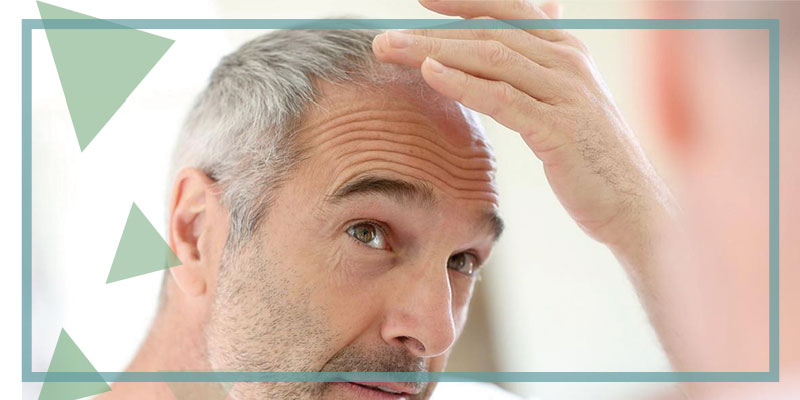
When Will The Implanted Hair Grow?
The better you care for your scalp after hair transplantation, the faster your healing process will be. The shock spill you may encounter during the healing process may scare you. Transplanted hair may fall out in the period between 1 and 3 months after hair transplantation. This sudden spill is called shock spill. Your lost hair does not mean that the operation is unsuccessful, it is a normal period. Immediately after the shock loss, the hair transplanted to the area begins to grow and grow over time.
Hair growth accelerates in the 4th month after hair transplantation and after the 6th month, hair transplantation begins to give results. During this period, not all, but half of the transplanted hair grows. Therefore, it is a process that requires patience after hair transplantation and hair transplantation.
The 6th month after the operation is important because the hair transplanted in this period continues to grow and begins to thicken and strengthen like your natural hair. The strong hair transplanted after hair transplantation directly affects the result you will get. Hair growth takes between 6 and 12 months.
The last period after hair transplantation and the results are seen is the 12th month. By the 12th month, the transplanted hairs will complete their growth and have a natural appearance. Hair that gets stronger and grows returns to its natural growth.
Although the period of hair growth after hair transplantation varies from person to person, the average full result is obtained between 12 and 18 months. In all these processes, you should pay attention to the hair transplanted. If you pay extra attention to what needs to be done after hair transplantation and apply it, you will have more lush, healthy and durable hair. When you decide to have a hair transplant, you should prepare yourself accordingly after learning about all the processes and possibilities of your specialist. There are small but important details such as the clothes you will wear during the operation, the food you will eat after the hair transplantation and the pillow you will use. When you apply what you need to do, you can get through the process painlessly without any problems.
If you encounter a situation other than the reactions mentioned by your specialist after hair transplantation, you should contact your specialist directly. Any reaction and situation that may occur during this process is of great importance and may affect your hair transplantation. Apart from that, you do not need to worry in cases such as shock shedding, scabs and bleeding in the first 5 days.
